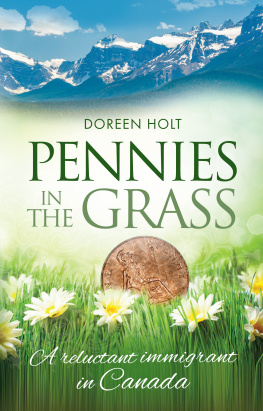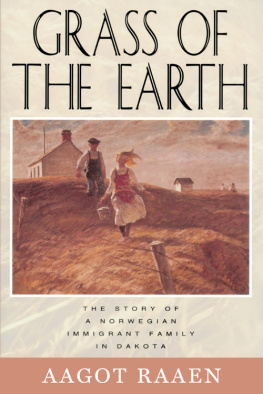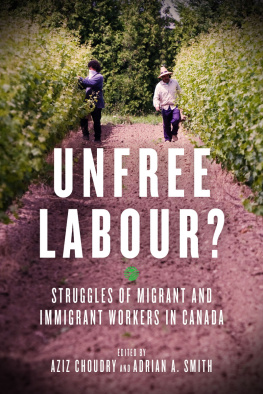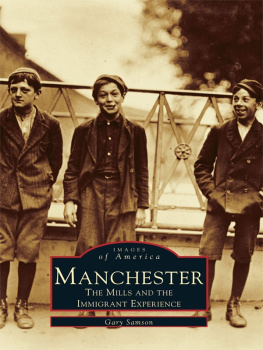PENNIES IN THE GRASS
A reluctant immigrant in Canada
DOREEN HOLT
Copyright Doreen Holt 2014

Mereo Books
1A The Wool Market Dyer Street Cirencester Gloucestershire GL7 2PR An imprint of Memoirs Publishing www.mereobooks.com
Pennies in the Grass: 978-1-86151-232-1
First published in Great Britain in 2014?by Mereo Books, an imprint of Memoirs Publishing
Doreen Holt has asserted her right under the Copyright Designs and Patents Act 1988 to be identified as the author of this work.
A CIP catalogue record for this book is available from the British Library.
This book is sold subject to the condition that it shall not by way of trade or otherwise be lent, resold, hired out or otherwise circulated without the publishers prior consent in any form of binding or cover, other than that in which it is published and without a similar condition, including this condition being imposed on the subsequent purchaser.
The Memoirs Publishing Group Ltd Reg. No. 7834348
The address for Memoirs Publishing Group Limited can be found at www.memoirspublishing.com
Ebook formatting by www.ebooklaunch.com
Table of Contents

When I was a little girl, many years ago, every story book began with the words ONCE UPON A TIME. Then followed the adventure or the fairy story, which usually ended with... THEY LIVED HAPPILY EVER AFTER. Although my life has not exactly been a fairy story, it has provided me with many challenges and adventures, both happy and sad.
My story begins when I was just a young child growing up in England in the Great Depression of the 1930s, living through World War II, many years of food shortages, air-raid sirens and the awful sound of bombs whistling downwards to their targets, and finally to peace. It also portrays the joys of Christmas, the games we played and the frightening experience of that first day at school, which should have been a happy experience, but wasnt. It covers the teenage years, the discovery of boys causing both joy and tears before finally finding the right one to marry. Then the sadness and stresses of being a very reluctant immigrant to Canada in the 1960s, the struggle to survive in a new environment, the path to eventual financial and family stability, and of course the various magical and unexpected experiences in my long life - the pennies in the grass of the title.
It also delves into the social history of Great Britain in the mid-twentieth century, the difficulties of being an immigrant and the medical systems of Canada and England, and takes an unsparing look at the evolution of marriage over a period of 50 years and the massive changes in so many areas of life, which I hope the reader will find interesting, familiar, inspiring and valuable in this book of memories.
BEGINNINGS

My birthplace was Liverpool, a large city on the north-west coast of England. It is a port city with a waterfront we called the Pier Head, where the buses and tramcars terminated their journeys before returning to the particular district they served in the suburbs.
There are several impressive buildings lining the waterfront. The Liver Building with its mythical bird on the top of the high tower is familiar to most residents next to the Cunard Building and Mersey Docks and Harbour Offices, known as the Three Graces. Another easy-to-spot building is the Roman Catholic Cathedral, sometimes referred to affectionately as Paddys Wigwam because of its resemblance to one. No one seems to take offence at this unseemly name and the reference is usually accompanied with a humorous smile, for it is a very unusual piece of architecture.
Another interesting building on the waterfront is the tall red- and-white-striped home of the White Star Shipping Line, which commissioned the Titanic , the ship which was built in Belfast and declared unsinkable. This huge and magnificent liner, on her maiden voyage from Southampton to NewYork hit a huge iceberg and tragically sank, taking the lives of many, many people. That was over one hundred years ago, but it has not been forgotten and probably never will be. Liverpool Port used to be a bustling one. Across the River Mersey in Birkenhead there was a large shipbuilding company called Cammell Lairds, which went into decline after World War II.
Nowadays the port has recovered somewhat and the waterfront restored to a great extent, attracting visitors year round, and hopefully is now back to being a thriving part of the City. There are ferries which cross the short span of the Mersey toWallasey and New Brighton which many people use, both for pleasure and for transportation purposes.
This important city has a very mixed population. It is home to the very rich, the very poor and everything in between. It is of course, now well-known because of the Beatles, who monopolised the airways and the headlines, and millions of teenagers hearts, from 1962 onwards. They performed in the Cavern right in the City - it is still there and now has a place in Liverpools history books. Their thick accents were familiar to me and I can still spot a Scouser when I hear one!
This city is jokingly referred to as the capital of Ireland because of the large influx of Irish folks who crossed the sea to swell the ranks of the unemployed. They are largely of the Roman Catholic faith and had many children to support, since birth control is forbidden in their religion, something the later generation seems to have ignored to some extent - and who can blame them. Like many immigrants, they left Ireland for better things but I imagine that few would achieve them in Liverpool.
Its citizens are called Liverpudlians and are affectionately referred to as Scousers, which I think originated from the fact that the poor population fed their hungry broods with a diet of cheap cuts of beef, cut into small cubes and simmered for several hours in Oxo, or if you could afford it, Bovril, a much richer version, cooked in one pot on the stove-top. Any kind of vegetables, and lots of potatoes, lentils, barley and split peas were all added to the mix to make a rich stew,which for some reason or other was called Scouse. It is nourishing and delicious and it was always enjoyed in our house, from when I was a child right up to the present time.
The only thing I disliked about it was the barley my mother insisted on including in the ingredients. I hated the feel of it in my mouth and would pick it out and place it around the edge of my plate. It would look like a cheap string of pearls by the time Id finished my dinner. I was often scolded for doing this, but I never would eat it.
There is a variation of this dish called hotpot, which uses the same ingredients but is layered into a large dish, finishing up with several layers of thinly-sliced potatoes, cooked slowly for several hours in the oven. The potatoes on top turn brown and crispy and this is often my choice of dinner. Once everything is prepared, there is nothing more to do other than wait for it cook. During the war when beef and all meat was severely rationed, these dishes would still be made minus the meat, when they earned the name of Blind Scouse, still substantial and nourishing but less expensive to make.
The city dwellers are well known for their rich sense of humour. Many have quipped that you have to possess one to survive in Liverpool! It actually has spawned many comedians who have risen to fame, including Ken Dodd and Jimmy Tarbuck, to name just two, but there are many others who have made their names in show business. Theirs is a special kind of topical humour which often only the locals understand or relate to, but something I can still chuckle about. They see the funny side of life in their own poverty-stricken and often harsh lives and make jokes about themselves. They are usually generous, goodhearted people who welcome you into their homes and share whatever they have with you. The first thing they do is put the kettle on the stove, because a cup of tea is the solution to every problem under the sun, according to them! They are the real salt of the earth and would give you the shirt off their back if you needed it.











